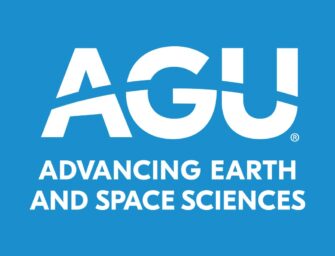Recent AGU publications updates help authors and expand open access
We are pleased to share an update on our ongoing efforts to make it more rewarding to publish your research with AGU.
A critical part of AGU’s mission is making science available to the widest possible audience and exemplifying an inclusive scientific culture. Our strategic plan guides us in balancing the long-term sustainability of our journals with equity of access and inclusion for all in our community.
In case you missed it, we recently announced that AGU members now have access to the full text of all AGU subscription journals, amounting to thousands of cutting-edge papers each year spanning the Earth and space sciences. This is not only a significant value for AGU members, but also another step in our commitment to expand access to content, with the support of our publishing partner, Wiley.
Along with highlighting this great new benefit to AGU members, we wanted to share a few additional updates we made in 2021 to expand access and create the best experience for researchers who publish with AGU.
Updates for authors:
- Name change policy — We updated our policy to support anyone who wishes to change their name on a previously published AGU publication, for any reason. This includes but is not limited to marriage or divorce, religious conversion and alignment of gender identity.
- Plain language summaries — We created guidance on how to write effective plain language summaries, which can help to ensure the impact of your work is easily understood by a wider community. The guidance includes several annotated examples for inspiration.
- No more excess page fees for OA articles— We eliminated excess page fees for all of our fully open access journals and for anyone who purchases an open access license in our other journals.
- Automatic uploads to ResearchGate — Newly published AGU articles are now also available on ResearchGate. The final, published version of your research—the same version available on Wiley Online Library—is easily discoverable by new readers in your field within their personalized ResearchGate discovery feeds.
- Improved LaTex output in PDFs — We improved the output of LaTex-based equations in article PDFs. The new process retains the original LaTex coding in manuscripts so that the output closely matches the original manuscript in both inline and display equations. We have also enhanced our HTML online proofing system to use the LaTeX coding, which allows authors to see and edit the accurately rendered equations in their HTML proofs.
In addition to these improvements, AGU also continues its work to expand access to Earth and space science research through these recent initiatives:
- Open access for G-Cubed journal — AGU’s journal Geochemistry, Geophysics, Geosystems (G-Cubed), which publishes research on the chemistry, physics, geology and biology of Earth and planetary processes, became open access as of 1 January 2022. G-Cubed joined seven other AGU open access journals: AGU Advances, Earth’s Future, Earth and Space Science, GeoHealth, Journal of Advances in Modeling Earth Systems, Perspectives of Earth and Space Scientists and Space Weather.
- Discounts for Open Access — Many funders and institutions now completely cover or take advantage of discounts for open access author publishing charges in AGU journals through accounts with our publishing partner, Wiley. Find out if your institution has an account.
- Research4Life discounts and waivers — AGU, through the Research4Life partnership, offers discounts or waivers on open access fees for authors without funding or from certain countries. Send your request in an email to the journal or in your cover letter.
- Continued development of ESSOAr — Seven societies, including AGU, are working together on the governance and development of ESSOAr.org, the Earth and Space Open Archive. The archive, which began in 2017 as a way to support open science via sharing preprints and posters, now supports all rich meeting presentations.
- Launch of the Community Science Journal and Exchange — AGU and five other leading societies launched the Community Science Exchange, a new platform for advancing the practice and sharing the results of community science. The web platform and journal, Community Science, are now open for submissions and contributions.
- Continued promotion of AGU research — Research from AGU publications is routinely promoted through press releases, research spotlights, editor’s highlights, editors’ vox and social media, often resulting in news stories in media outlets worldwide. Find out more how you can work with AGU to publicize your research.
We look forward to supporting the Earth and space science community with these changes and initiatives in 2022 and beyond. As always, please reach out to us at [email protected] with any questions.



There are no comments
Add yours